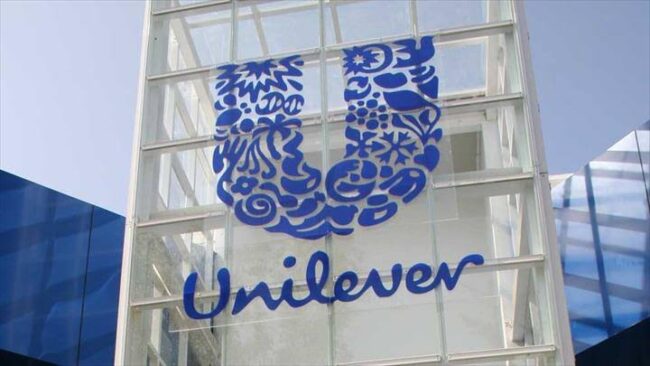Unilever Nigeria Plc posted a strong gain in sales revenue in the first quarter ended March 2021.
The company’s turnover was elevated by roughly 46 percent during the quarter, staging a major rebound from a flat growth at the end of the prior financial year.
Sales have been upward bound for the company since the second half of last year. There was an outstanding growth of over 94 percent in sales revenue in the third quarter and 84 percent advance quarter-on-quarter in the final quarter of 2020.
Recovering sales revenue presents a strong positive signal for Unilever Nigeria this year. Sustaining high growth in sales raises hopes for a possible return to profit in the course of the financial year.
Advertisement
The company’s management appears to be on the right track in addressing the critical factor in its operating challenges in recent years — which is a significant loss of sales revenue.
The company generated sales revenue of over N19 billion for the first quarter operations at the end of March. This represents an increase of some 46 percent compared to a flat turnover at the end of the 2020 full year.
Revenue gains in the second half of last year enabled the company to cut its loss for the year from N4 billion in 2019 to N1.6 billion. Further gains in turnover is therefore promising for further cut in the loss figure, even a possible return to profit in the current financial year.
Advertisement
The gains in sales in the first quarter were recorded in the company’s two broad market segments of food products and home/personal care products. Home/personal care product segment led the growth by more than 52 percent to N9 billion in the first quarter, marking a rebound from a drop of 7 percent at the end of last year.
Also, an increase of 9 percent in the company’s food products segment last year has accelerated to over 40 percent to N10.4 billion at the end of the first quarter.
The growth in sales revenue turned out to be insufficient to cover cost increases and build profit for shareholders in the first quarter. First quarter operations closed at a loss of N491 million, which marks the third straight year that Unilever Nigeria has traded in the red.
With recovering sales and a 4th quarter profit in 2020, it had been expected that this year’s trading would open at a profit for Unilever Nigeria in the first quarter. However the cost moderation expected to bring this about could not be realised during the period.
Advertisement
Instead, costs grew generally ahead of revenue so that the improvement in sales was insufficient to absorb all the cost increases. Input expenses posed a major challenge over the period by growing ahead of sales revenue. From a drop of 12 percent at the end of last year, cost of sales rose by as much as 51 percent to close at N15 billion at the end of March.
The high growth in cost of sales consumed an increased share of revenue and therefore eroded gross profit in the first quarter. The expenses claimed 77 percent of turnover in the first quarter compared to 74 percent in the same period last year.
The company still recorded an increase of over 30 percent in gross profit to N4.5 billion for the first quarter but gross profit margin dived from 26 percent to 23 percent over the review period.
The leading cost increase came from selling/distribution expenses, which rose by 63 percent to N3.8 billion from a 2 percent decline at the end of last year. There was also an increase of 36 percent in impairment loss on receivables – whichadded to the upsurge in selling/distribution expenses. The cost increases threw operating results into a loss of N165 million at the end of the first quarter.
Advertisement
A drop of 62 percent in finance income added to the company’s constraints during the review period. Finance income is down for the second year after a 48 percent drop in 2020.
Unilever closed the first quarter operations with a net finance income of N152 million and a pre-tax loss of N13 million. Tax expenses built up the net loss to N491 million at the end of the first quarter.
Advertisement
The company posted a loss of 9 kobo per share for the first quarter against earnings per share of 26 kobo in the same period last year. The prospects for returning to profit this year depends on whether it can add cost moderation to improving revenue.
Advertisement
Add a comment







